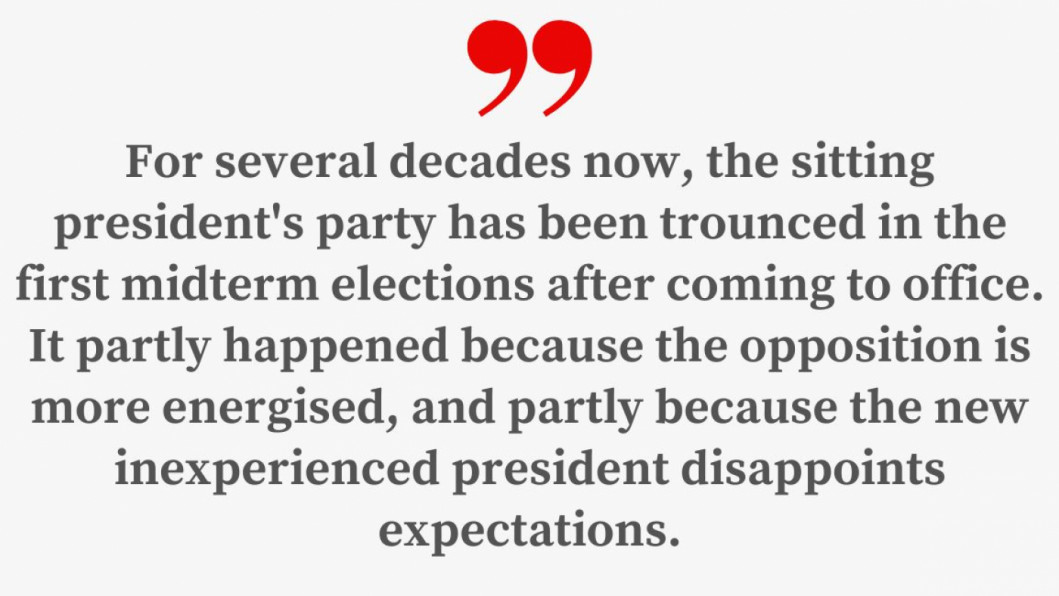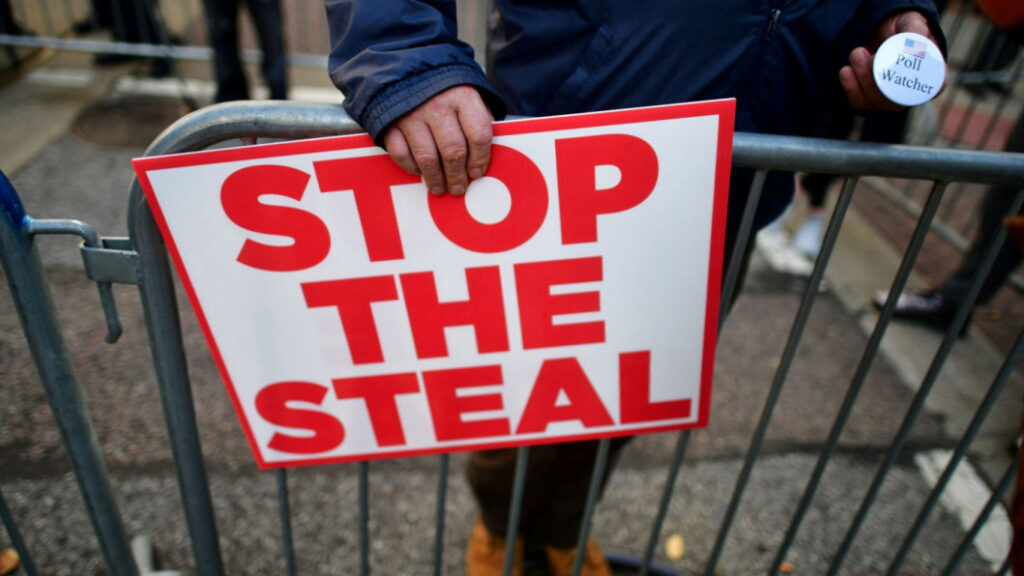But what the latter was unable to do amid these two busy years was to strengthen laws and institutions to protect democracy. Meanwhile, the threats to democratic rule have metastasised. The midterm elections of November 8 will shake the foundations of US democracy for three reasons.
First, some 300 Republican candidates, including more than half of them running as governors and senators, deny the validity of the 2020 presidential elections. That is so even though more than 60 cases challenging the election result were dismissed by judges, many of them Republican appointees.
Second, several candidates are ambiguous about whether they will accept the election result if they lose. The leader here is Kari Lake, likely the next governor of Arizona and an emerging national leader.
These Republican candidates challenge a central tenet of democracy: fair elections and peaceful transfer of power. A radical change has occurred in US politics in the last two years.
The 2020 elections displayed the profound integrity of election workers, especially of the Republican officials supervising voting in key battleground states of Arizona, Georgia, and Pennsylvania – where the race was close and largely determined the national results. Republican election officials, state county clerks, secretaries of states, governors, and ultimately the US vice-president stood steadfast in protecting election results. They withstood pressure from local party officials and even the president to “find” votes to win. After being challenged, the recounts of ballots of the most contested counties in Arizona, Texas, Wisconsin, and Georgia confirmed the outcome.
The January 6, 2021 assault was no less significant. It was an insurrection against the US government to prevent fair elections and the peaceful transfer of power. Rubbing salt in the wound, 147 Republican members of Congress voted against certifying the 2020 election results the next day.
How did the Republican party, the Grand Old Party (GOP) of Abraham Lincoln, Teddy Roosevelt, and Dwight Eisenhower, which preserved and led the US to greatness, come to this point? Historians will debate this question for years, but there can be no question about the GOP’s glorious past.
The Republican Party led the US through the 1861-65 Civil War, when more than half a million Americans died to preserve their country and free African Americans from slavery. In that war, they armed nearly 200,000 African Americans, free men and former slaves to fight in the Union Army and Navy. They built the infrastructure of the 19th century and again in the mid-20th century, making the US an economic giant. In 1890, they restrained the growth of monopolies, saving the country from the clutch of oligarchies. In 1954, their government sent the US Army’s 101st Airborne Division to Arkansas to enforce the Supreme Court decision to allow African American children to attend desegregated schools. Republican President Eisenhower warned the country and the world about the dangers of the military-industrial complex.

That Republican Party now threatens the US Constitution by challenging free elections and peaceful power transfer. By doing so, it is paving a “path to chaos” and violence, as President Biden warned last week. Last week, too, security agencies warned candidates and election officials about possible violence. Then came the hammer assault on 82-year-old Paul Pelosi, husband of House Speaker and Democrat Nancy Pelosi.
The tacit pandering by Republican leaders of these foreboding tendencies is disturbing as they are all but certain to win on November 8. For several decades now, the sitting president’s party has been trounced in the first midterm elections after coming to office. It partly happened because the opposition is more energised, and partly because the new inexperienced president disappoints expectations.
As it is, Democrats now hold razor-thin majorities in the House and the Senate. Despite remarkable achievements, their Achilles’ heel has been the inability to address “kitchen table” issues about spiking inflation, crime and immigration, declining stocks where most Americans keep their savings and pensions, and a growing concern about recession.
The biggest threat, however, will be the irregular conduct of the 2024 presidential elections. Trump is likely to be running again for the presidency, and many of his staunch 2020 election-denying Republican supporters will be conducting the elections. They can use ambiguous laws to intimidate voters, refuse to certify unfavourable results, and even appoint biased electoral college members. If they do so, the country will plunge into turmoil. Thus, it is shocking but not altogether surprising that historian and author Yuval Noah Harari recently raised the possibility that “the next presidential election could be the last democratic election in US history.”
That will not happen, because the US still has options to protect elections and democracy. Ideally, the current Congress would pass the almost final Electoral Count Reform Bill of 2022 on an emergency basis before the next Congress takes office in January 2023. This bill clarifies many ambiguities in existing election laws that could manipulate elections. Perhaps after victory, Republican leaders would awaken to the dangers confronting the US Constitution. Finally, if needed, the courts would also have to step forward to stop the slide to chaos.
Dr Ahmad Ahsan is the director of the Policy Research Institute (PRI) of Bangladesh, and a former World Bank economist and Dhaka University faculty member. He is a member of the US Democratic National Committee. Views expressed in this article are the author’s own.
https://www.thedailystar.net/opinion/views/news/american-democracy-risk-3163016







